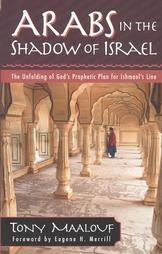All the Children of Abraham

One of the DTS graduates I interviewed while in Jordan recommended a book by another grad. It's Arabs in the Shadow Israel, in which the author considers what the Old Testament has to say about Ishmael's line. It's a brilliant piece of work that's forcing me to reconsider some long-held ideas about Abraham's other son.
When Hagar, Sarah's Egyptian maid, fled toward Egypt after Sarah abused her, God appeared and spoke words of comfort. And Hagar named him El-roi, the God who sees. The oracle God gives about her son, Ishmael, (the oracle that prompts Hagar's assessment of God) includes the prediction that Ishmael will be a wild donkey of a man.
I've always taken that as a judgment, an insult. But that's because I live in America in 2008, and to be called a donkey is totally a slam! Yet rewinding to Moses's mindset when he wrote the story helps me see the words as solace to an abused woman. Whereas God sends her back to submit herself to Sarah in slavery, He promises that her son's descendants will be numerous and free. The word "wild" has the idea of being free, not unruly. Free, as in not under bondage. And a wild donkey at that time was a prized animal. We see some of the sons of Isaac blessed with animal likenesses in places where blessings are pronounced upon them, as well.
This is just one of the many observations the author makes in laying out a case for both of Abraham's sons being children of blessing.
